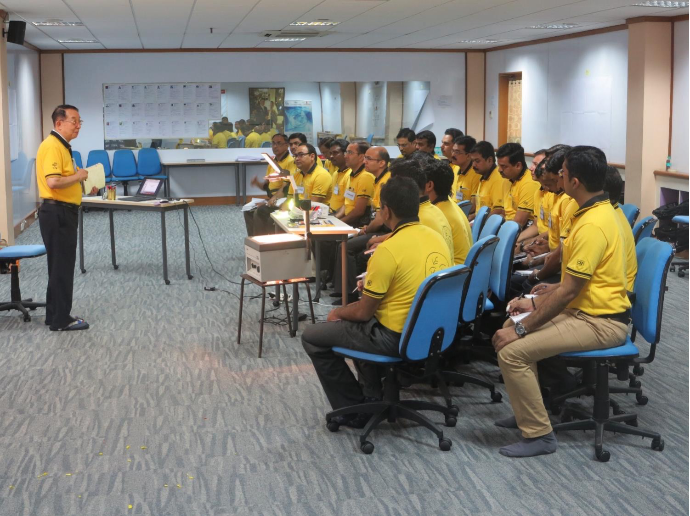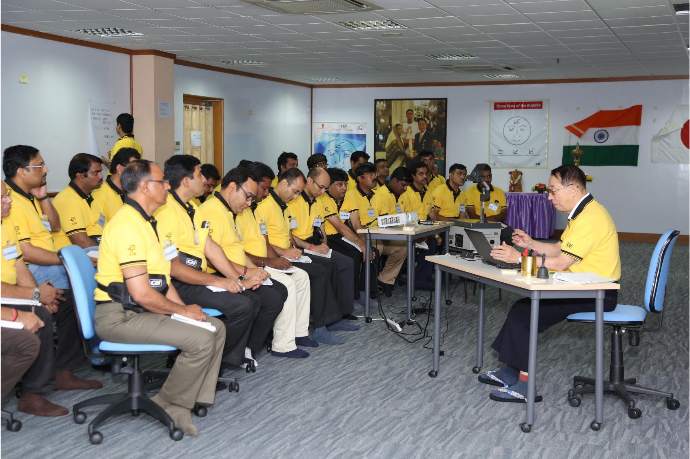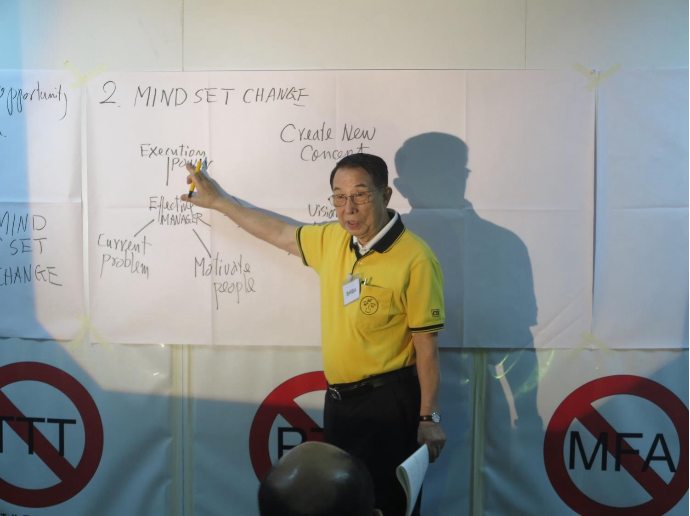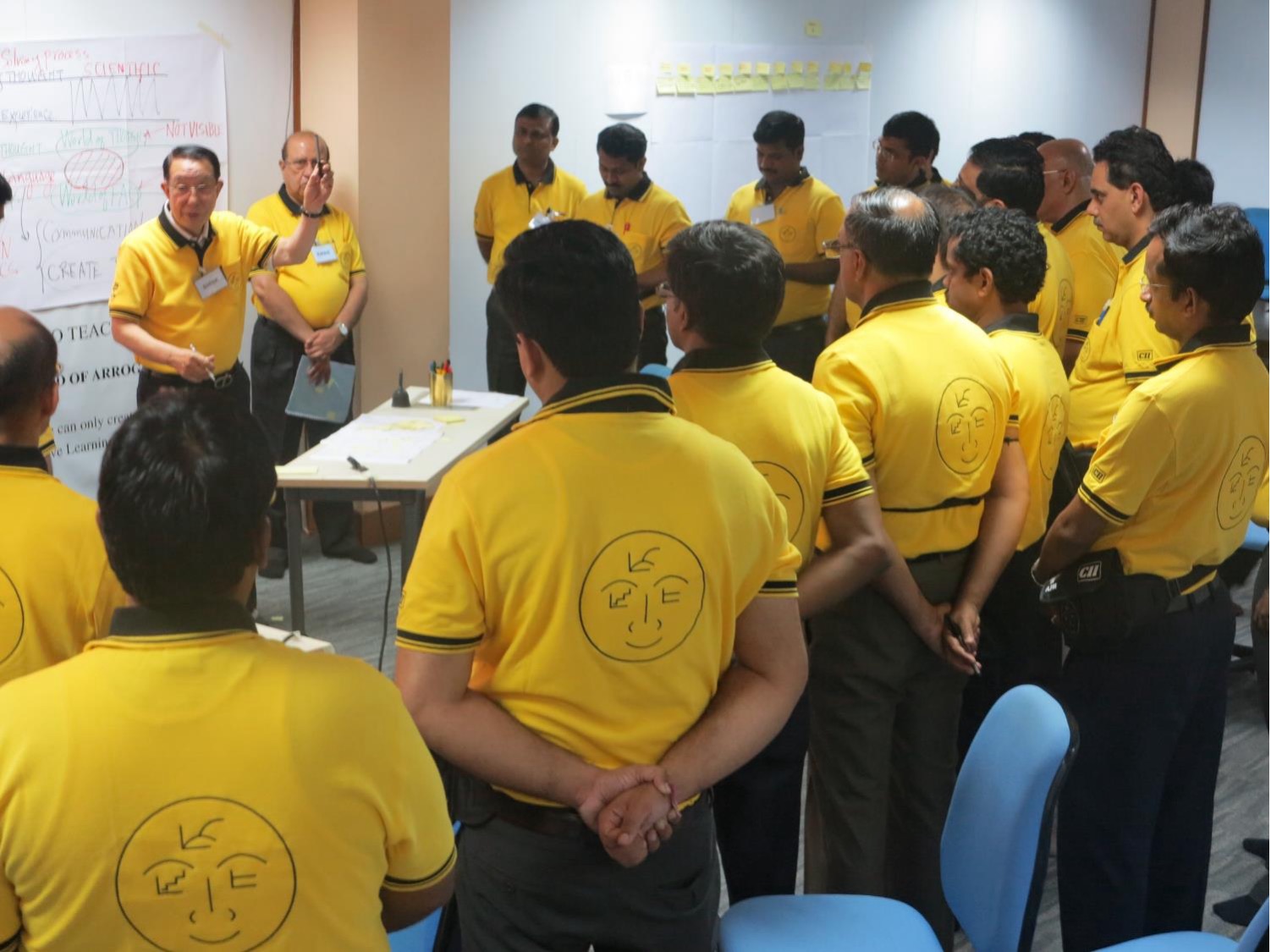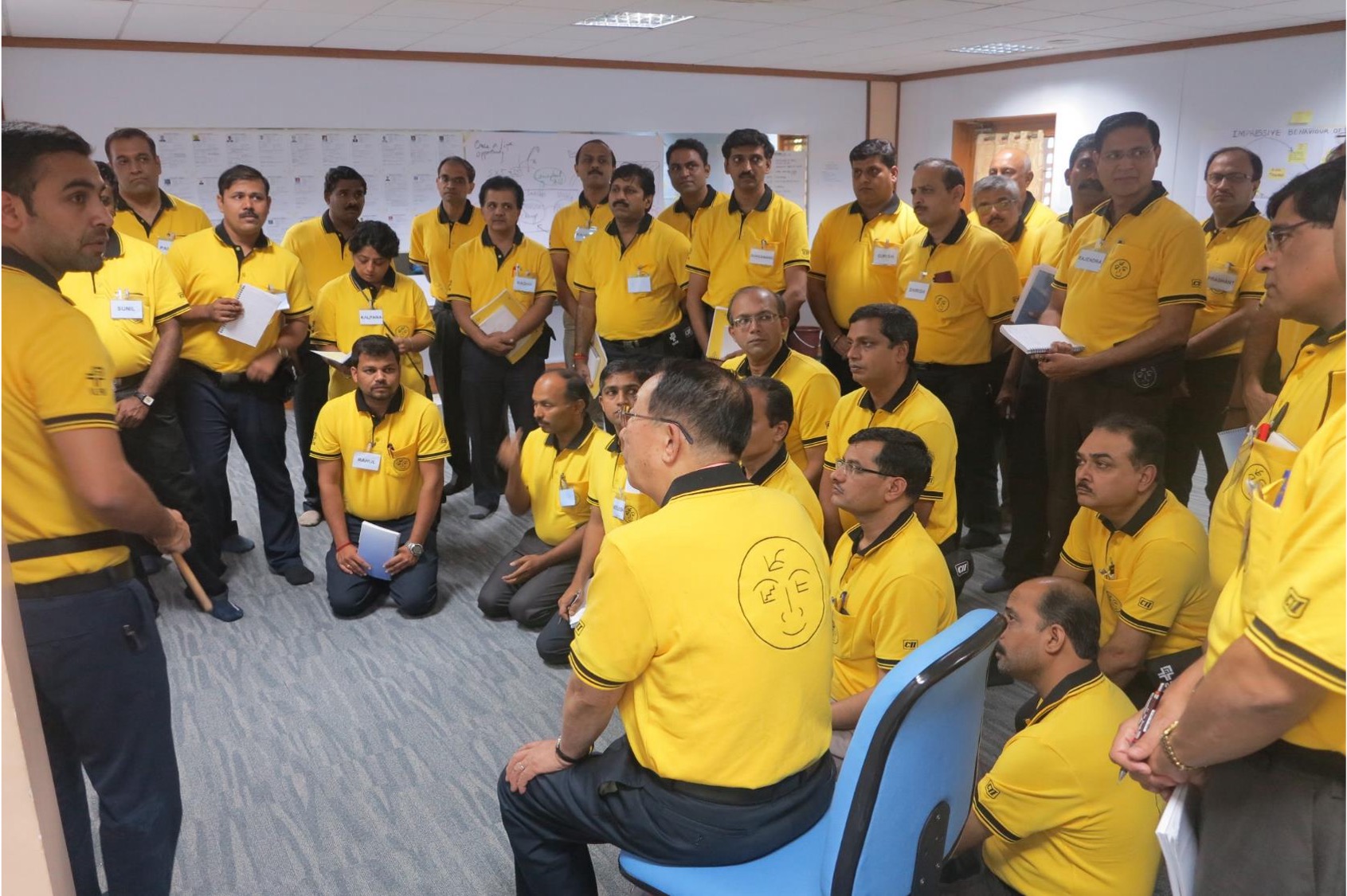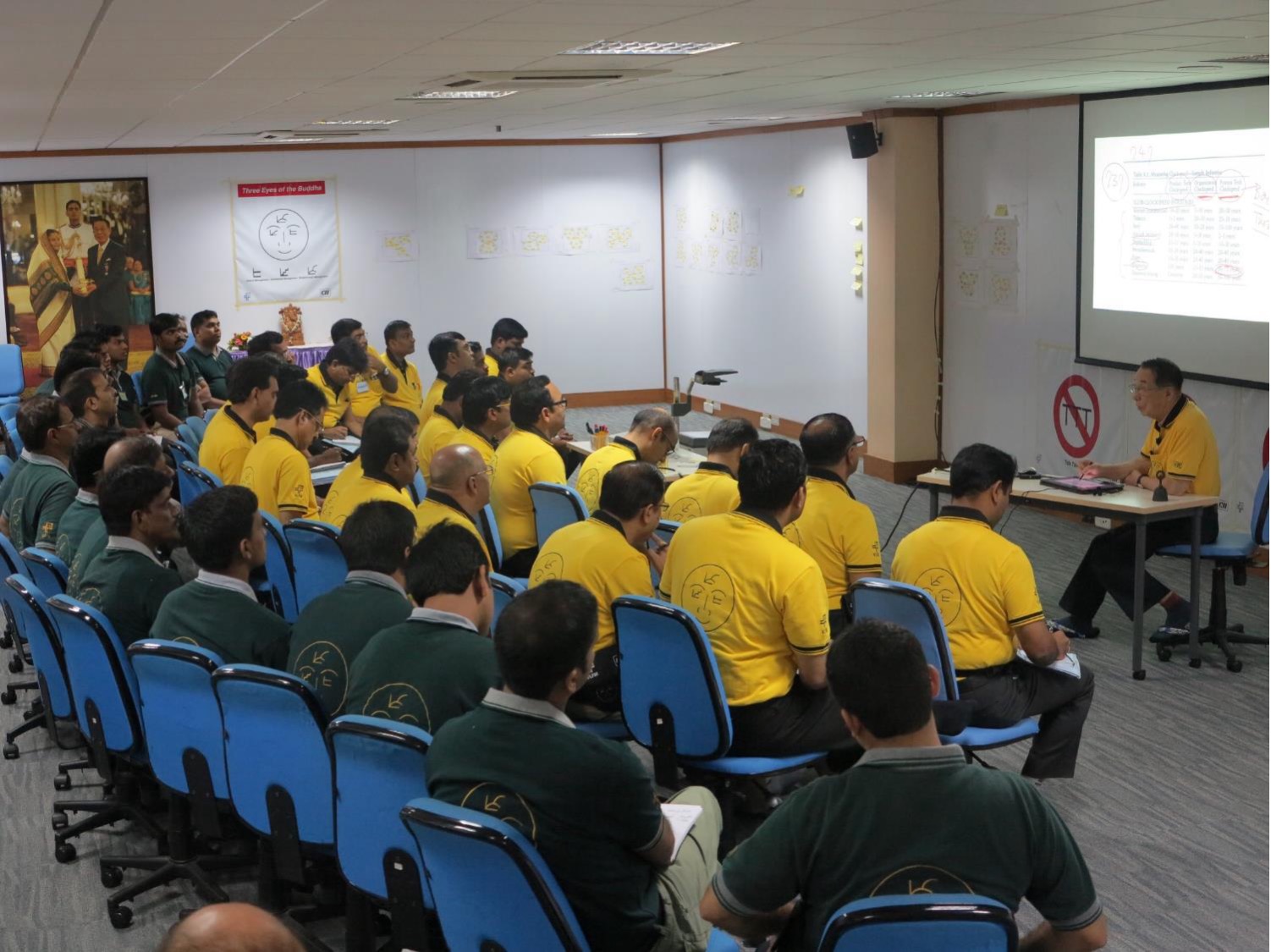About Shoji Shiba
Shoji Shiba was awarded the 2002 Deming Prize for Individuals. The award citation honored Shoji Shiba for:
- Contributing to the academic world through efforts to apply quality in industry and throughout the region and society from the social science viewpoint.
- Demonstrating the effectiveness of the Japanese way of TQM through wide diffusion and practice in industry in Hungary and the United States.
- Contributing to the Japanese quality society by introducing the different viewpoints of social science outside Japan, i.e., a global view.
In 2004, Shoji Shiba’s book Breakthrough Management was awarded the Nikkei QC Literature Prize.
As an international expert in TQM, Dr. Shiba was responsible for disseminating TQM practices and methodologies to the industries and governments of many countries, including Chile, China, France, Hungary, India, Ireland, Italy, Malaysia, Norway, Portugal, Spain, Sweden, Switzerland, Thailand, the United Kingdom, and the former USSR.
In honor of his work in Hungary, that country established the IIASA-Shiba Award, which is presented annually to organizations, groups, and individuals who make significant contributions to TQM. Also, the president of the Hungarian Republic has bestowed its Small Cross of Order of Merit upon Dr. Shiba for the high value and generous activity that Dr. Shiba has accomplished in the field of quality improvement and management in Hungary. In 2005, the European Organization for Quality awarded Shoji Shiba the Georges Borel Medal for continuous contributions to the development of quality management in Europe by a person from outside Europe.
From 1990 to 2004, Shoji Shiba was an adjunct or visiting professor at MIT, where he taught graduate courses at the Sloan School of Management and in the Leaders for Manufacturing program. He is also a professor emeritus at Tsukuba University in Japan, where he taught business administration until 1996. From 1996 to 2000, Shoji Shiba was dean and professor of business administration at the School of Applied International Studies of Tokiwa University in Japan.
Dr. Shiba helped establish the Center for Quality of Management (CQM) in Cambridge, Massachusetts, in 1989. CQM is a nonprofit organization and a consortium of companies created to share international methods and experiences for improving business performance.
Shoji Shiba was elected to membership in the International Academy of Quality in 2002 and elected as a Companion of the UK Institute of Quality Assurance in 2006.
Since 2006, he has been the Chief Advisor to the Visionary Leaders for Manufacturing Program (VLFM) in India. This innovative management transformation program was implemented with the Japan International Cooperation Agency to create a critical mass of Visionary Leaders to lead India's manufacturing sector into future growth. It is a globally successful experiment in collaboration with the Indian Industry (Confederation of Indian Industry), Indian Academia (Indian Institute of Management Calcutta, Indian Institute of Technology, Kanpur and Madras), and the Indian Government.
Professor Shiba was honored with The Order of the Sacred Treasure, Gold Rays with Neck Ribbon, by the Emperor of Japan in 2011. This decoration comes to him for his immense contributions towards fostering academic exchanges between Japan and India. The Orders of the Sacred Treasure, established in 1888, are decorations conferred to recognize an individual's distinguished long-term public service.
In 2012, the Government of India conferred Prof. Shiba with the Padma Shri for his contributions to Indian Industry and for strengthening India-Japan ties.
Professor Shiba now lives with his wife, Mieko, in Tsukuba, Japan.
Prof. Shiba in India
Based on his commitment to Dr Abdul Kalam, the then-President of India, Prof. Shiba spent much of his life in India since 2009. In these years, he mentored many senior managers from India’s manufacturing sector to meet global challenges, guiding them in achieving breakthroughs and training them to transform to deal with drastic changes in the business environment.
Prof Shiba’s relationship with India began in the late 1960s when he visited the country to conduct cross-cultural studies and worked in an Indian power station for almost six months. In 1994, he conducted a top management seminar in Bangalore at the invitation of CII, followed by other visits in 1998 and 2000.
In July 2004, he initiated the first CII Learning Community with 11 Indian companies to learn about Breakthrough Management and apply it to the Indian context. In 2006, Prof Shiba started developing the Visionary Leaders for Manufacturing (VLFM) Program under the aegis of the National Manufacturing Competitiveness Council of the Indian government. He continued supporting the VLFM Program until October 2018, when he stopped coming to India due to his age and health. Even after returning permanently to Japan, he has continued to guide and mentor his Indian disciples.
Professor Shoji Shiba's most significant contribution to the Indian manufacturing industry has been the Visionary Leaders for Manufacturing (VLFM) Program. He conceptualized the program, designed its infrastructure and curriculum, trained and mentored the faculty, guided the creation of its intellectual assets, and helped perfect its execution under his strict supervision.
The basic philosophy of VLFM is, “Success is the first step to failure." Human beings need to make efforts to transform continuously. One cannot follow the same path forever, even if that path has succeeded in the past. The only way to remain relevant to society is to evolve and keep moving forward. With this belief, VLFM has continuously transformed itself.
By July 2024, the VLFM Program had developed over 6,000 visionary leaders from over 1,000 companies. In the future, CII will make the CSM program more relevant, impactful, and sustainable to create the next wave of the transformation of Indian Manufacturing.
You can find more information about the VLFM Program in the books available in the Download Center.
Padma Shri
Mrs. Pratibha Patil, the then-President of India, conferred the Padma Shri on Professor Shoji Shiba on March 22, 2012. This was in recognition of his contributions to transforming India’s manufacturing sector to become globally competitive and strengthening India-Japan ties.
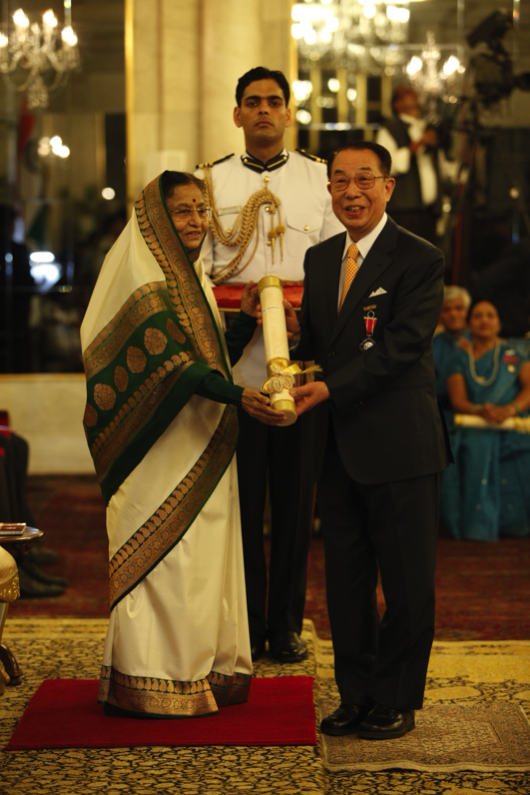
Prof. Shiba's Q-FSDP
To comprehend the changes around us and respond to them by creating new hypotheses, Prof. Shoji Shiba developed the Five-Step Discovery Process (FSDP) tool. FSDP helps to discover a possible opportunity and conceptualize how to exploit it. When we apply FSDP, we typically perceive changes around us through image and language data and create the concept through language data. A powerful tool, it quickly became a must-have implement in a senior manager’s toolkit. However, FSDP has some shortcomings: it is a little tedious and time-consuming. Depending on the skill of the practitioner, it can take anywhere between three to six hours to complete the process. In today’s fast-changing world, where time is money, and when the need to use the tool is not limited to a few, a quicker and easier way of doing what FSDP is expected to do was required. Recognizing this, Prof. Shiba created a new, quick method of FSDP – the Q-FSDP – to generate concepts for the future in less than two hours. In fact, after intensive training and sufficient practice, most people can finish Q-FSDP in less than 30 minutes if appropriate input data is available.
Q-FSDP is easy to learn, easy to get skills, and easy to train. From the practical viewpoint, the results it gives are nearly the same level as those obtained from the application of FSDP. The shorter time Q-FSDP takes allows it to be applied iteratively, producing even better outcomes. With all these benefits, it is natural that Q-FSDP should become a tool of choice for everyone who wants to perceive symptoms of change and create new concepts for the future.
The Q-FSDP Analyst is designed to help Q-FSDP practitioners complete their analysis in a fraction of the time yet more comprehensively using Artificial Intelligence.

